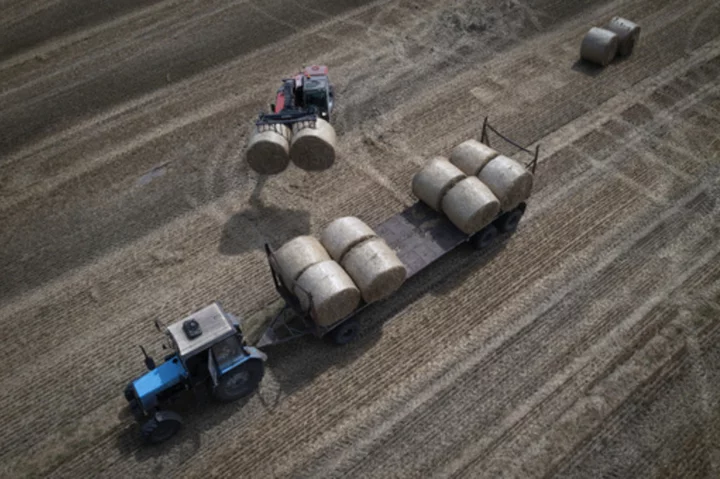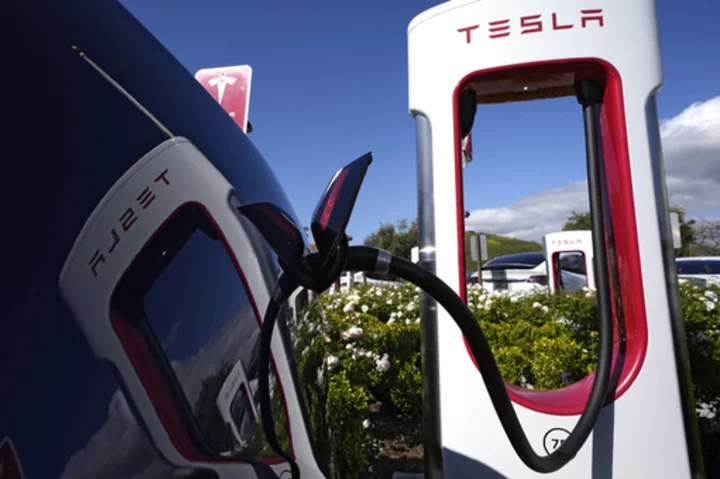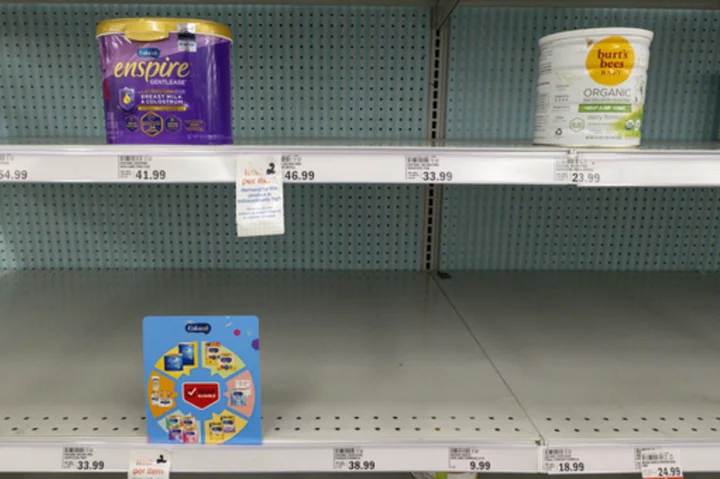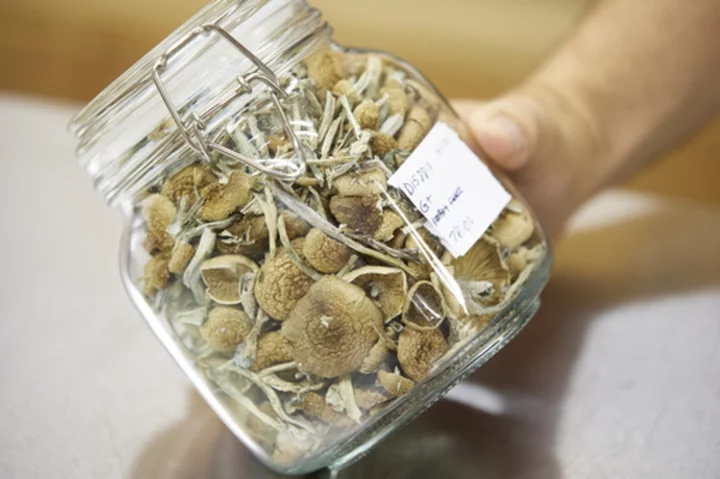LONDON (AP) — The European Union on Friday decided not to renew a ban on Ukrainian food heading to nearby countries that have complained that an influx of agricultural products from the war-torn nation has hurt their farmers.
The move sets up a clash with Poland, Slovakia, Hungary and Romania, which have said that food coming from Ukraine has become stuck within their borders, creating a glut that has driven down prices for local farmers and hurt their livelihoods. The issue threatens European unity on supporting Ukraine against Russia’s invasion.
Bulgaria, while part of the original ban, decided this week to allow in Ukrainian imports again to bring down food prices.
“The market distortions” have disappeared, according to the European Commission, the EU’s executive arm. Ukraine has agreed to put measures in place starting Saturday to control the export of wheat, corn, rapeseed and sunflower seeds to neighboring EU countries, the commission said in a statement.
It also will introduce proposals — for example, an export licensing system — within 30 days to avoid grain surges, the EU said.
The leaders of Poland and Hungary have threatened to adopt their own bans on Ukrainian agricultural products if the EU didn’t act.
Without an EU extension, “then several countries banding together in international cooperation — the Romanians, the Poles, the Hungarians and the Slovaks — are going to extend the import ban on a national level,” Hungarian Prime Minister Viktor Orbán said in a radio interview on Friday.
Earlier this week, Polish Prime Minister Mateusz Morawiecki said that if the ban wasn’t renewed, “we will do it ourselves because we cannot allow for a deregulation of the market.” Government officials reiterated that Friday. Poland’s governing Law and Justice party is trying to attract farmers’ votes in an Oct. 15 parliamentary election.
In a turnaround, Bulgaria lawmakers on Thursday approved resuming imports of Ukrainian food products. Finance Minister Asen Vassilev says the ban has deprived the government of tax revenue and led to higher food prices.
Ukraine praised Bulgaria’s decision and had pressed for an end to the ban, saying any further restrictions would have “a clear destabilizing effect on the global food market,” Ukraine’s Ministry of Foreign Affairs said in a statement.
Grain and other Ukrainian food had been allowed to pass through the five European countries on the way to parts of the world in need.
In July, Russia pulled out of a U.N.-brokered deal allowing Ukraine to ship grain safely through the Black Sea. Routes through neighboring countries have become the primary way for Ukraine — a major global supplier of wheat, barley, corn and vegetable oil — to export its commodities to parts of the world struggling with hunger.
Recent attacks on Ukraine’s Danube River ports have raised concerns about a route that has carried millions of tons of Ukrainian grain to Romania’s Black Sea ports every month.
That has meant road and rail routes through Europe have grown increasingly important. While facing blowback from neighbors, they aren’t ideal for agriculture-dependent Ukraine either, whose growers face higher transportation costs and lower capacity.
After the countries passed unilateral bans earlier this year, the EU reached a deal allowing them to prohibit Ukrainian wheat, corn, rapeseed and sunflower seeds from entering their markets but still pass through their borders for export elsewhere.
The EU also provided an additional 100 million euros ($113 million) in special aid on top of an initial support package of 56.3 million euros ($60.2 million) to help farmers in the affected countries.









